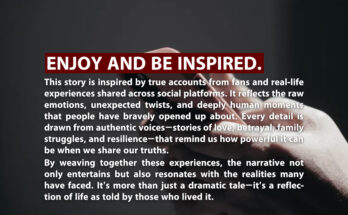I (34F) have always been open about not wanting biological children. At 29, I underwent a hysterectomy because of severe endometriosis. It was traumatic, but eventually, I made peace with it.
My parents never truly accepted it. I think they always believed I’d change my mind, marry a man, “miraculously” have a baby, and give them grandchildren. When that didn’t happen, they began to distance themselves — subtly at first, then more obviously.
Last month, my brother casually mentioned that he and his wife would be inheriting everything. Confused, I asked my parents about it. That’s when my mom told me flat out: “You chose a lifestyle that ends with you. What’s the point of passing things to you? You’re a dead end!”
I was stunned. As if my entire worth had been reduced to my uterus. When I told them how hurtful and backward that was, they brushed me off, saying I was overly sensitive and selfish. They insisted it was their right to decide what to do with their estate, and that “you wouldn’t understand the importance of legacy.”
I didn’t argue. I didn’t cry. Instead, I smiled, pulled an envelope from my bag, and placed it on the table. “Take a look,” I said.
Inside were photos: a tiny newborn swaddled in pink, wide curious eyes staring up. Me holding her, smiling. A crib with her name spelled in wooden letters above it — Eleanor.
My mother’s mouth fell open. “Whose baby is this?”
“She’s mine,” I replied. “Her name is Eleanor. I’m adopting her next week. She’ll carry the family name.”
My father’s face lit up. “You’re adopting?! Why didn’t you tell us?”
Tears welled in my mother’s eyes. “She’s beautiful. You should have told us sooner! A granddaughter — finally!”
I held up my hand. “No. You don’t get to be excited. Not after what you said. Not after you decided I was worthless because I couldn’t give you a ‘legacy.’ You erased me from your will because of my uterus. You made it crystal clear what matters to you.”
“But we didn’t mean—” my father began.
“You meant exactly what you said,” I cut him off. “You told me I chose a life that ends with me. So fine. Let’s keep it that way. Eleanor is my beginning. Not yours.”
My mother reached for my hand. “Please… let us be part of her life. We’ll change the will. We’ll set up a fund for her. We were wrong.”
I stood up. “No. You don’t get a second chance. Eleanor will grow up knowing she is wanted, loved, and chosen — unconditionally. She won’t spend her childhood trying to earn the approval of people who only value bloodlines and breeding.”
They called the next day. And the day after. Voicemails. Messages. Even my brother tried reaching out: “We changed the will. You’re back in. So is the baby.”
I never responded. Eleanor and I don’t need them. I only hope I won’t regret this decision — but deep down, I believe I’m doing the right thing.


